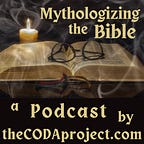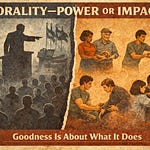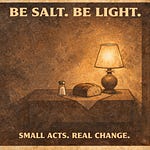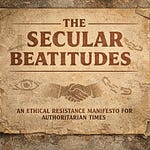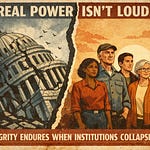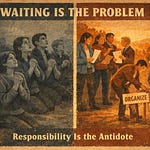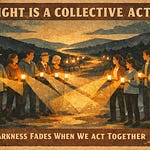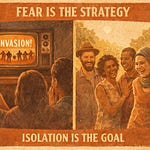Welcome to another Bonus Edition of the MTB podcast—a segment of the weekly episode that I call Afterthoughts! This is one of my favorite parts of these weekly presentations because it gives us a chance to dig a little deeper, connect the dots, and really challenge ourselves to think critically about what we discussed during the main episode.
In this bonus episode, we’re looking at the Sermon on the Plain—Luke’s version of what many people know as the Sermon on the Mount in Matthew. Traditionally, Christians interpret these blessings and ‘woes’ as promises of reward for the faithful and cautions to those who might be living outside of God’s ideal plan. But in our conversation today, we’re going to step away from that lens and ask ourselves: What do these teachings look like if we remove the supernatural framework and focus on how they can guide us in everyday life?
So, my goal here is to take each statement—like ‘Blessed are the poor’ or ‘Woe to the rich’—and reimagine it through a humanistic perspective. We’ll talk about empathy, community support, and ethical living as real-life, here-and-now values instead of purely religious directives. Essentially, I wanted to see if these ideas can stand on their own merits, especially in a world where people rely on each other more than on any outside authority or higher power.
To do that, we’ll basically go line by line, pairing each blessing with its corresponding woe, then see how it might apply to modern social issues: from economic inequality and food insecurity to the ways we treat people who disagree with us. Hopefully, by the end, we’ll find a new way to look at these ancient words—but one that resonates whether you’re religious, spiritual-but-not-religious, or just someone who wants to live in a more caring society.”
Spoilers below…
The Humanistic Beatitudes
“Those who struggle financially are part of our common humanity—when we uplift them, everyone thrives. But if we hoard wealth and ignore the vulnerable, we create a society on shaky ground.”
“When we acknowledge and strive to meet each other’s basic needs, we strengthen our common bonds. But turning a blind eye to the hunger of others can erode compassion and community.”
“Empathy for those in sorrow helps create deeper human connections. If we celebrate without acknowledging others’ pain, we risk being shallow and disconnected.”
“Standing up for what’s right—even if it goes against the crowd—reflects genuine integrity. Chasing popularity above all else can lead to moral compromise.”

